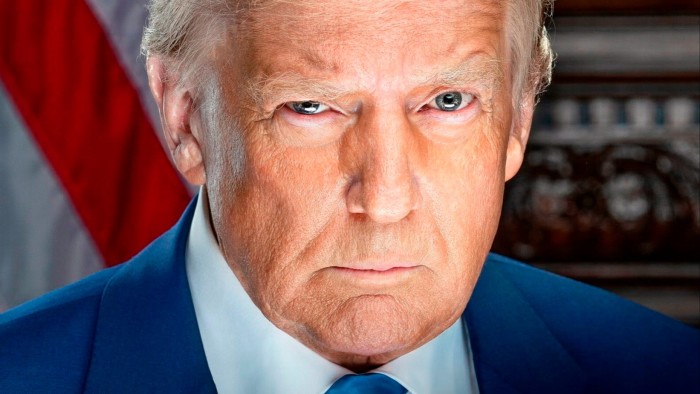The revenge program has taken shape

Donald Trump relishes the idea that returning to the White House will give him the power to take down those in the “deep state” who once opposed him — and nearly sent him to prison.
Just hours after he was sworn in as America’s 47th president, his revenge campaign was underway.
Among the initial targets was John Bolton, Trump’s former national security adviser and one of the president’s fiercest critics. Bolton’s first security clearance was revoked. Trump then ordered the removal of the protective detail assigned to Bolton in 2019 following threats to his life from Iran.
“We won’t have security details about people for the rest of their lives – why should we? I think he is a very stupid person,” said Trump on Tuesday.
Bolton said he was “disappointed but not surprised”.
That could be just the beginning as Trump moves to crush his perceived opponents within the government, taking aim at targets ranging from intelligence agencies to military, financial and business regulators as well as in the law enforcement apparatus itself.

It could mark a new era for the United States – and its way of governing, with favors and punishments doled out at the whim of a leader, not at the verdict of Professional bureaucrats are guided by long-agreed rules within their institutions.
For Trump, it’s a time of vindication as he root out officials who obstructed his agenda during his first term or put him in legal jeopardy with criminal cases. against him in 2023.
“The immense power of the state will never be weaponized to suppress political opponents,” he said in his inaugural address at the Capitol on Monday.
Hours later, he signed one executive order on “weaponizing” the government, allowing for a sweeping review of U.S. intelligence and other agencies to correct “past wrongdoing” through “appropriate action.”


“It’s an open-ended counter-protest move,” said Yuval Levin, a senior fellow at the conservative American Enterprise Institute.
He said it was “too early to tell” whether Trump was just sending a message asking public servants to “stay away” from his radical agenda or “reorganizing the bureaucracy so that it fully serves the president.” more unified”.
Intelligence agencies are a particular focus for Trump. In another executive order signed Monday night, Trump stripped 50 former intelligence officials of their security clearance, claiming they coordinated with former President Joe Biden’s campaign to discredit reports about his scandal-prone son Hunter Biden.
The order echoes language used by Kash Patel, Trump’s controversial pick to head the FBI, who is awaiting Senate confirmation.
Patel has long argued for scrapping security measures to eradicate the “deep state.”
A former US intelligence official said the measure would have a “chilling effect” on agencies. “This is a clear sign that Trump will use the exemption for political reasons. That will make people wary of speaking their mind.”
“Anything that suggests access is being manipulated for political purposes,” said Emily Harding, director of the intelligence, national security and technology program at the Center for Strategic and International Studies. would damage the confidence of the intelligence community.”
Trump also sent a clear message to the Pentagon, where just minutes after he took office, officials removed a portrait of his former top military adviser — and eventual critic. political peacemaker – retired general Mark Milley. On Monday, Trump also fired Linda Fagan, the Coast Guard commandant, with a senior official saying she had “focused too much on diversity, equity and inclusion” and handled Wrong border security issue.
But Trump’s plan goes far beyond America’s security apparatus. The “weaponization” executive order calls for closer oversight by the Securities and Exchange Commission and the Federal Trade Commission, along with other enforcement agencies like the justice department.
Pam Bondi, Trump’s pick to be attorney general, has declared that “investigators will be investigated” and “bad” prosecutors will be prosecuted.
“I am concerned that this allows the government to weaponize itself against perceived enemies,” said Ryan Goodman, a professor at New York University School of Law.
“Ordinarily, there may be nothing wrong with a retrospective investigation of potential government wrongdoing,” he added. But this order “has been prepared for candidates who will join the government with an enemies list. That is a very worrying combination for the state of democracy in the country.”
Trump has previously called for the prosecution of opponents, including Nancy Pelosi, the former Democratic House Speaker, and former vice president Kamala Harris, whom he defeated in the 2024 general election. He also threatened to appoint a special prosecutor to “hunt down” Joe Biden.
Biden himself has taken this threat — and others — seriously enough to issue preemptive pardons to members of his family and top potential targets like Milley and fellow panel members. investigation into the January 6, 2021 attack on the Capitol Building, including the former congresswoman. Liz Cheney, just before he left office.
Trump is also taking aim at federal workers, vowing to strip employment protections, which have been strengthened under Biden, for tens of thousands of career civil servants in “government-related” jobs. policy” — a way to easily fire government workers who obstruct his agenda.
Meanwhile, as he stripped his perceived enemies of security clearance, he issued a separate executive order to immediately grant temporary security clearance to “staff qualified and trustworthy” that he chooses.
Olivia Troye, a former Trump administration official turned critic of the president, wrote on X.





